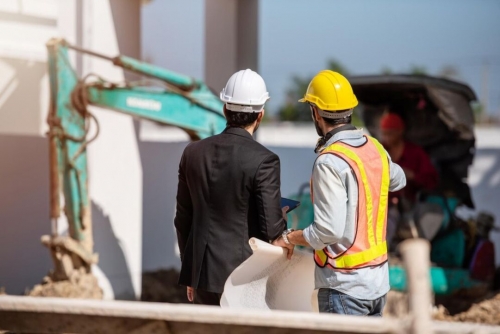Residents in Bahrain may soon experience some peace and quiet as the Shura Council moves forward with a proposal to limit construction hours. This amendment to Bahrain’s building organization Law, backed by the Public Utilities and Environment Committee, aims to give the minister the authority to set specific times and days when building, demolition, and excavation work would be off-limits in residential areas. The goal is to create a quieter environment for residents by curbing noise disturbances that have been a source of longstanding complaints.
The proposal, brought forward by members Lina Qasim, Dr Jehad Al Fadhel, Dalal Al Zayed, Dr Mohammed Ali Hassan Ali, and Tareq Jaleel Al Safar, seeks to improve daily life for residents by addressing noise pollution from construction activities. Council Chairman Ali Al Saleh requested a review of the proposal, which has been examined in multiple committee sessions since its introduction earlier this year. If passed, the amendment would allow the minister to establish specific working hours in residential areas, while still allowing for emergencies such as urgent repairs to essential services like water or sewage systems.
The Legislative and Legal Affairs Committee has approved the amendment, stating that it complies with Bahrain’s legal standards. However, officials from the Ministry of Municipalities Affairs and Agriculture have expressed concerns about potential conflicts with Bahrain’s Labour Law, which already regulates certain private sector activities, including construction. Despite these concerns, the Public Utilities and Environment Committee remains committed to the proposal, seeing it as a necessary step to address noise disturbances in residential areas while still allowing for essential repairs outside of restricted hours.
Ali Al Shehabi has been appointed as the main rapporteur for the proposal, which emphasizes the potential for the amendment to create a calmer and more restful atmosphere for residents. The final report recommends Council approval, highlighting the benefits of the amendment in offering residents a quieter living environment. The proposal is set to be discussed and voted on in the Council, with potential cooperation between the ministry and local councils to implement and enforce the new regulations, ensuring residents can enjoy a more peaceful living environment.
In conclusion, the proposed amendment to limit construction hours in residential areas in Bahrain has the potential to address long-standing complaints about noise disturbances. By giving the minister the authority to set specific working hours, the amendment aims to create a quieter environment for residents while still allowing for emergency repairs to essential services. Despite concerns about potential conflicts with existing regulations, the Public Utilities and Environment Committee remains steadfast in its support for the proposal, recognizing the importance of addressing noise pollution in residential areas. If approved, the amendment could offer residents a more peaceful and restful atmosphere, improving their overall quality of life.





















